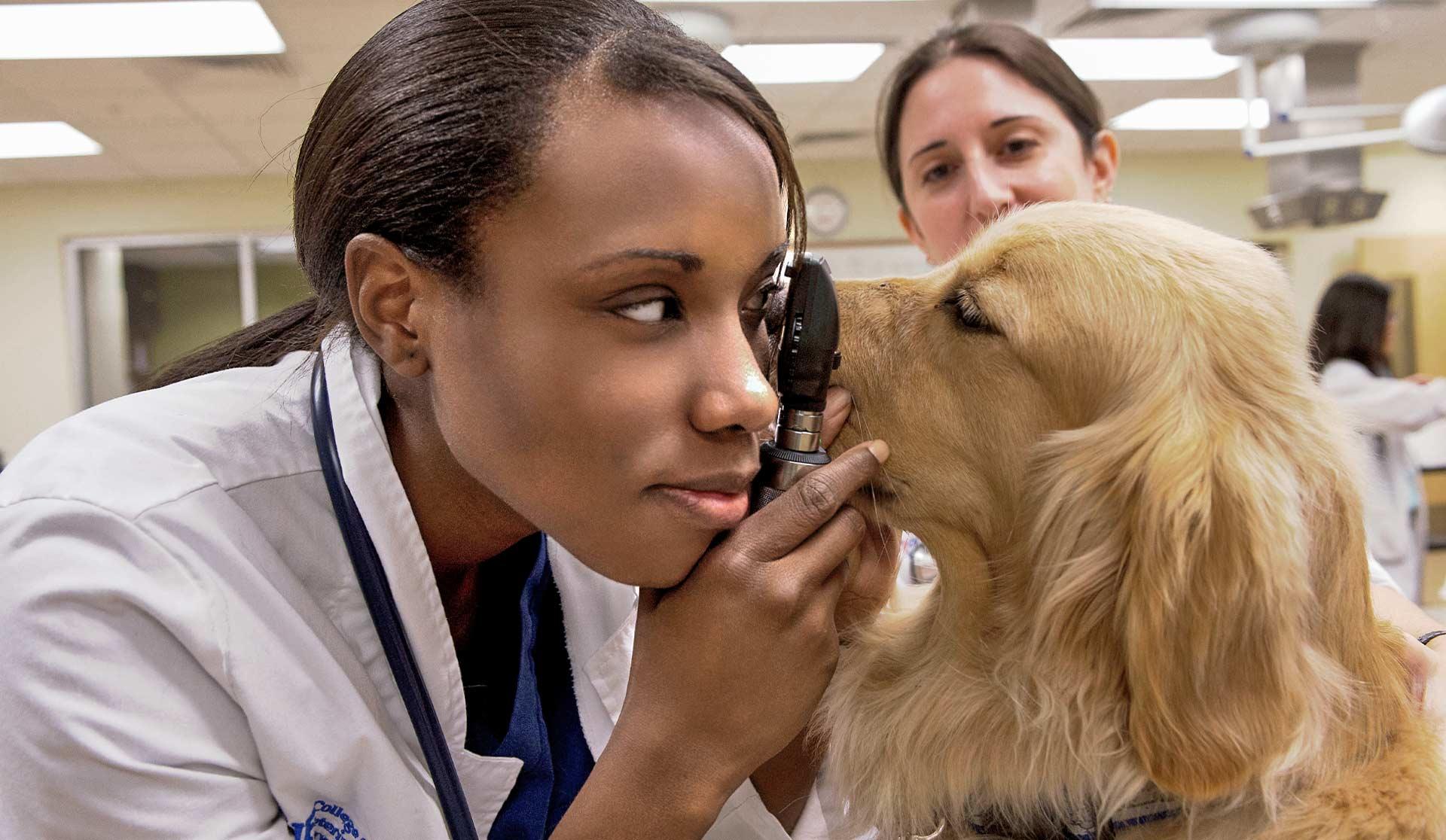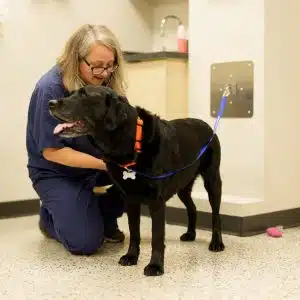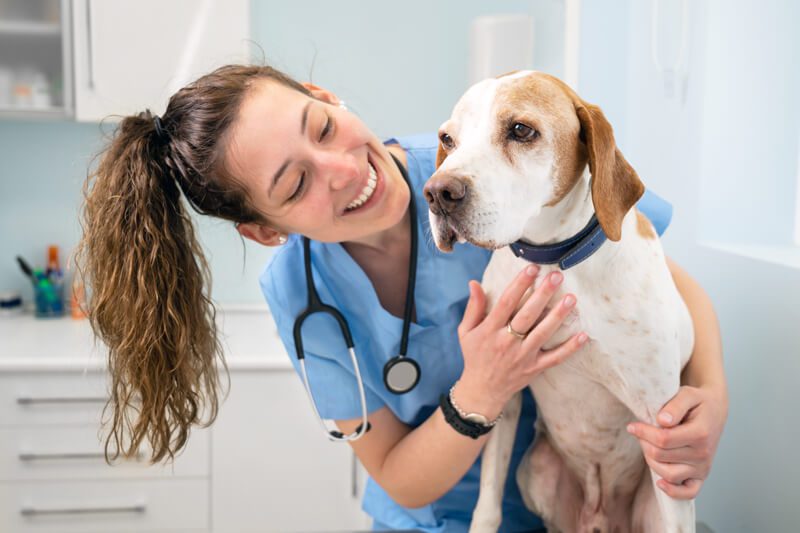Recognizing the Duty of a Veterinary Oncologist in Your Animal's Cancer Care
A veterinary oncologist focuses on detecting and dealing with cancer in animals. Their experience is important for establishing tailored therapy strategies that resolve the unique needs of each pet. Early diagnosis can significantly influence end results, making their duty also more vital. Comprehending the different treatment options and how these specialists collaborate with primary vets is essential. What methods do they use to enhance your animal's lifestyle during this tough time?

What Is a Veterinary Oncologist?
A veterinary oncologist is a specific vet that concentrates on treating and detecting cancer in family pets. These professionals possess innovative training in both vet medicine and oncology, enabling them to comprehend the complexities of cancerous conditions in pets. Their proficiency permits them to perform a range of analysis treatments, including imaging methods and lab tests, to properly determine different kinds of cancers in pets.
Along with diagnosis, vet oncologists develop customized therapy plans, which might include surgery, radiation treatment, radiation therapy, or palliative care. They function closely with family pet owners to describe therapy choices and possible outcomes, making certain that households make educated decisions regarding their pets' care. Vet oncologists often work together with other vet professionals and basic experts, developing an extensive technique to pet dog wellness. By concentrating on cancer care, they play an important duty in improving the quality of life for pets detected with malignancies.
The Value of Very Early Diagnosis and Therapy
Early medical diagnosis and treatment of cancer in family pets greatly boost the opportunities of successful results and boosted lifestyle. When cancer is identified in its very early stages, veterinary oncologists can apply targeted interventions that may reduce condition development and alleviate symptoms. This positive approach enables much better administration of the illness, potentially leading to longer survival times and enhanced convenience for the pet.
In addition, early discovery typically means that therapy options might be less intrusive and much more reliable, reducing the general burden on both the family pet and its proprietor. Routine veterinary check-ups and awareness of subtle behavioral modifications are important, as they can assist in timely medical diagnoses. Owners should stay cautious and consult their veterinarian at the first indication of issue. Board Certified Veterinary Oncologist. Inevitably, a very early diagnosis equips pet dog proprietors to make educated choices about their family pet's treatment, significantly influencing the overall journey with cancer management
Treatment Choices Provided by Vet Oncologists
When encountered with a cancer diagnosis, animal owners can explore a range of treatment alternatives supplied by veterinary oncologists that are customized to the specific needs of their pets. These professionals generally use a combination of surgical procedure, chemotherapy, radiation treatment, and immunotherapy. Surgical treatment might intend to eliminate tumors or impacted tissues, while radiation treatment utilizes drugs to target and kill cancer cells, frequently administered in cycles.
Radiation treatment concentrates on making use of high-energy rays to relieve and shrink growths pain. Immunotherapy, a much more recent improvement, harnesses the pet dog's body immune system to combat cancer extra efficiently. Additional encouraging treatments, such as pain administration, nutritional support, and palliative treatment, are also important elements of a complete treatment plan. By reviewing each instance separately, vet oncologists guarantee that the picked therapy straightens with the animal's general wellness and cancer type, maximizing the chances of a favorable result.
The Collaborative Strategy: Dealing With Your Main Veterinarian
Cooperation between key veterinarians and vet oncologists is important for providing considerable like pet dogs identified with cancer. This collaboration guarantees a thorough approach to therapy, integrating the specialized understanding of oncologists with the recurring treatment given by main vets. Together, they analyze the animal's health and wellness, establish personalized therapy plans, and monitor the animal's development throughout the cancer cells trip.
Primary veterinarians often function as the find out here preliminary factor of contact, recognizing prospective indications of cancer and referring individuals to oncologists for specialized diagnostics and visite site therapy alternatives. Adhering to the oncologist's recommendations, the primary veterinarian plays a crucial role in managing the pet's overall health, including discomfort management and helpful treatment.
Efficient communication in between these experts promotes a unified strategy, enabling prompt treatments and changes to treatment as needed. This joint method eventually boosts the high quality of treatment and assistance for pets and their owners during a tough time.


Supporting Your Animal With Cancer Cells Care
Supporting a pet through cancer cells care calls for an extensive understanding of the physical and emotional difficulties dealt with by both the pet and its proprietor. Caretakers need to listen to the family pet's transforming requirements, which may consist of handling discomfort, changing diet plans, and keeping an eye on negative effects from therapies. Supplying a comfortable, stress-free environment is essential for the family pet's health.
Emotional support is similarly crucial; proprietors need to look for to continue to be favorable and engaged while recognizing their own feelings of anxiety and despair. Developing a support network, consisting of veterinarians, family, and friends, can reduce some concerns.
In addition, family pet proprietors ought to enlighten themselves about the specific sort of cancer and treatment choices offered, promoting informed conversations with veterinary oncologists. Eventually, a compassionate approach, integrated with positive treatment and support, can improve the animal's lifestyle during this difficult trip.
Frequently Asked Questions
Exactly how Do I Choose the Right Vet Oncologist for My Family pet?
Selecting the right vet oncologist entails investigating credentials, seeking suggestions, reviewing experience with particular cancers, assessing interaction designs, and checking out facilities to assure a comfortable environment for both the pet and proprietor during therapy.
What Should I Anticipate Throughout the First Consultation?
Throughout the first appointment, the pet dog owner can expect a complete examination, conversation of case history, analysis tests, and a therapy plan outline. The vet will deal with issues and give advice for continuous treatment.
Are There Any Expenses Related To a Vet Oncologist's Providers?
Prices connected with a vet oncologist's solutions can vary substantially based on location, treatment complexity, and needed diagnostics. Veterinary browse this site Cancer Specialist. Pet dog proprietors must prepare for expenses for appointments, examinations, and prospective ongoing treatment plans tailored to their pets' needs

Can My Pet Still Receive Normal Veterinary Treatment While Seeing an Oncologist?
Pets can obtain routine vet care while seeing an oncologist. Collaborating treatments guarantees thorough health and wellness monitoring. Normal exams complement specialized cancer treatment, enabling holistic tracking of the family pet's total wellness and attending to other health issues.
What Resources Are Readily Available for Pet Owners During Their Animal's Cancer cells Trip?
Various sources are readily available for pet dog owners maneuvering their animal's cancer journey, including assistance groups, on the internet forums, instructional web sites, and monetary support programs, all intended at giving guidance, emotional assistance, and useful information during this challenging time.
A veterinary oncologist is a specific vet who focuses on dealing with and identifying cancer cells in pet dogs. They work very closely with animal proprietors to explain treatment choices and prospective results, making certain that family members make educated decisions about their animals' treatment. When faced with a cancer cells medical diagnosis, animal owners can explore a range of treatment choices supplied by vet oncologists that are customized to the certain requirements of their animals. Partnership in between main vets and veterinary oncologists is vital for providing considerable care to animals detected with cancer. In addition, pet dog owners need to inform themselves regarding the particular type of cancer and therapy options readily available, promoting notified discussions with vet oncologists.